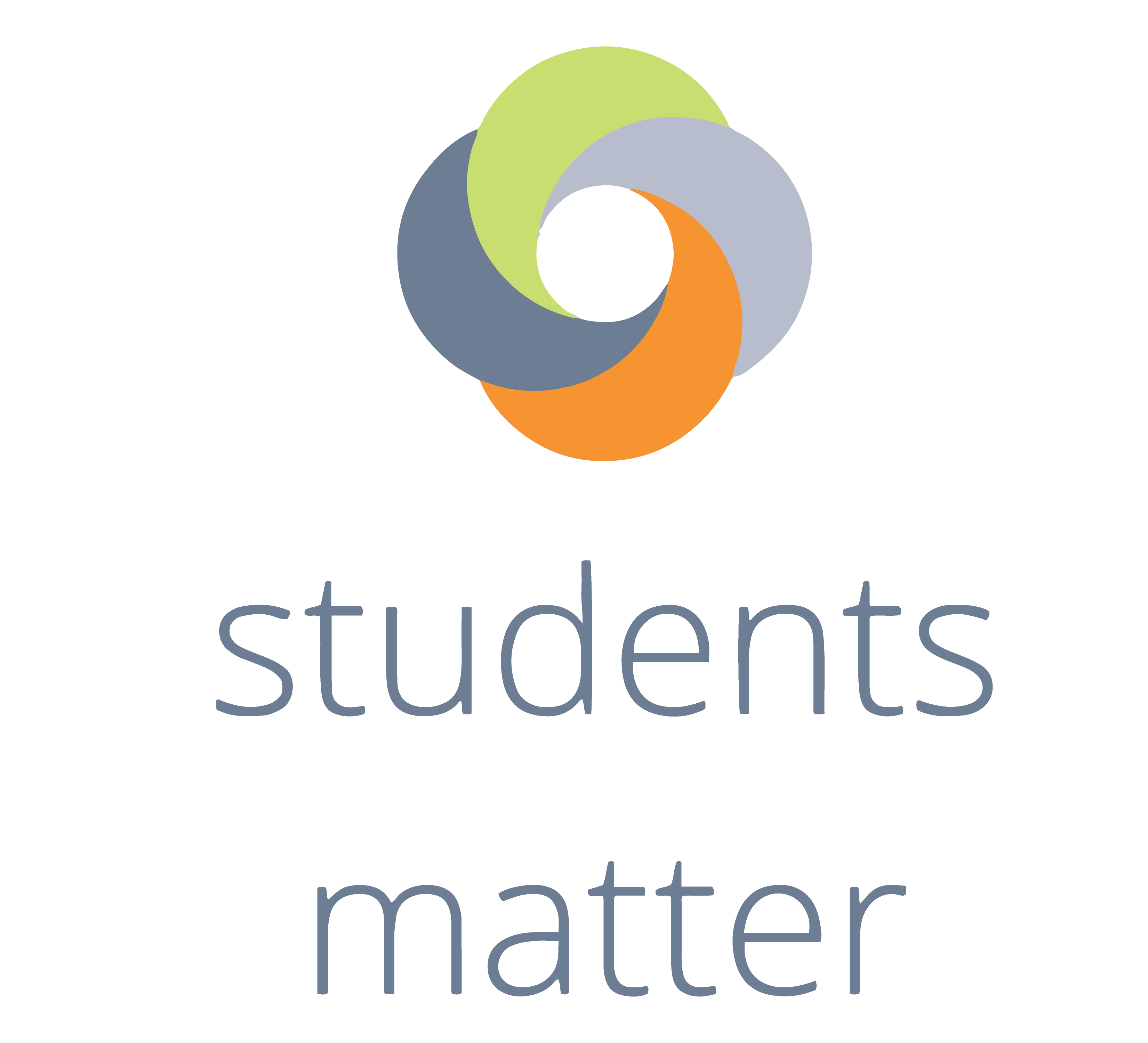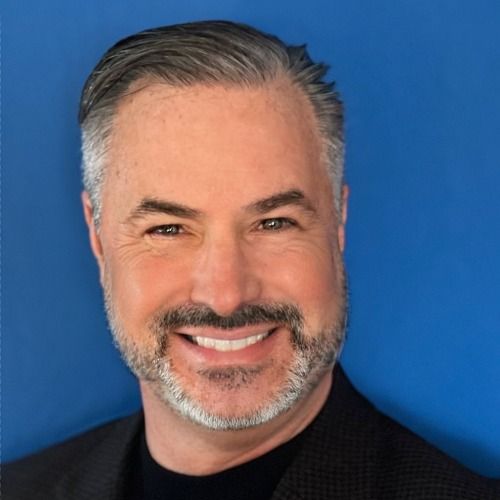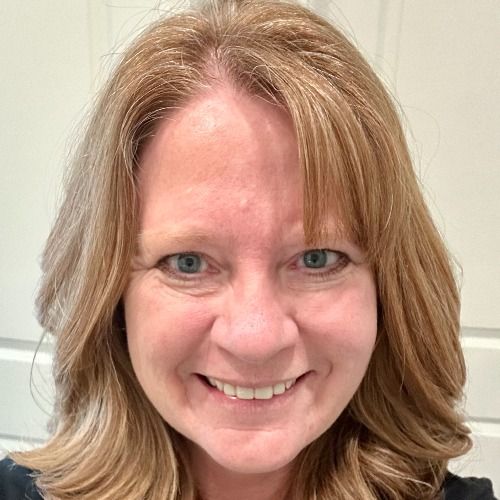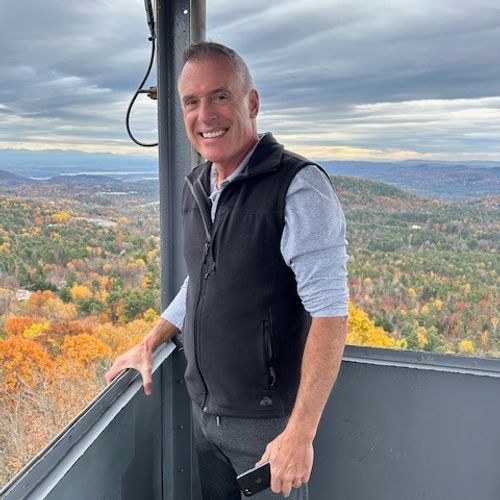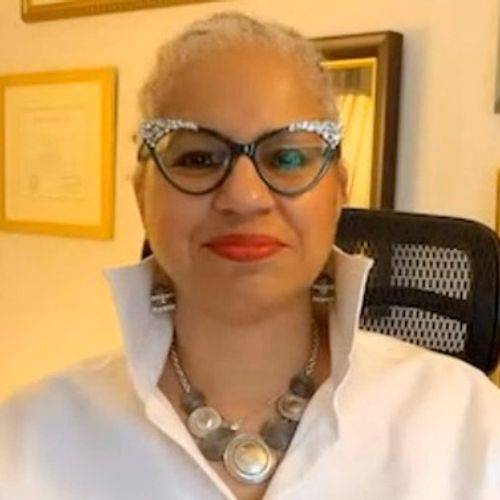Cultivating Hope: Insights from Season Nine's Finale
The culmination of Season Nine of our podcast presents part 2 of a reunion-style dialogue, where we engage with esteemed guests to reflect on our central theme: the dichotomy of cultivating hope versus killing dreams within educational contexts. As we delve into this critical conversation, we confront the pressing reality that many students, particularly those from marginalized backgrounds, grapple with feelings of alienation in their educational environments. We explore how educators can affirm the uniqueness and intrinsic worth of each student, thereby fostering an atmosphere of humanity and understanding. This episode serves as a poignant reminder of our profound responsibility to ensure that every child's potential is recognized and nurtured, as the implications of our actions extend far beyond mere academic outcomes. Join us as we dissect these essential questions alongside our distinguished panel, aiming to illuminate the path toward empowering our students and cultivating hope for their futures.
The season finale of the podcast encapsulates a profound discourse on the imperative of cultivating hope within educational environments, particularly for marginalized students who frequently encounter alienation within traditional schooling systems. The panel, comprising distinguished guests such as Jim Van Nada, Ruben Britt Jr., Dr. Shervita West, and Matthew Pinchinat, engages in a thoughtful exploration of the multifaceted challenges educators face in affirming the uniqueness and worth of each student. As they address the pressing questions of how to foster an atmosphere of humanity in the classroom and the broader implications of educational equity, the conversation resonates with urgency and poignancy. The guests collectively reflect on their experiences and insights, emphasizing the necessity for educators to embrace their moral responsibility to ensure that all children are afforded the opportunities to realize their full potential. The episode's central theme, framed as 'Cultivating Hope or Killing Dreams,' serves as a poignant reminder of the duality inherent in educational practices, urging listeners to reflect on their roles in shaping the futures of their students. Throughout the discussion, there is a clarion call for educators to recognize the profound impact of their actions and attitudes on the lives of their students, underscoring the idea that fostering hope is not merely an ideal but an essential duty of the teaching profession.
Takeaways:
- Empowering educators to cultivate hope for students was a central theme throughout Season nine.
- The importance of recognizing each student's unique and precious identity was emphasized during discussions.
- Humanizing students in education is crucial for fostering a positive and inclusive learning environment.
For more information about Students Matter, LLC., check out the URL:
Join The Wheelhouse community:
A Special Thank You to All of Our Season 9 Guests
- Jim Van Nada
- Ruben Britt, Jr.
- Dr. Shervita West
- Matthew Pinchinat
- Mel King
- Rob Barnett
- Melanie Ulinger
I am thrilled to have been joined by my esteemed friends and colleagues at The Wheelhouse:
- Katherin Mohney
- Michael Pipa
- Dr. Alicia S. Monroe
We can't wait to see you in Season 10!
Transcript
It's the Season nine finale and we're doing it reunion style.
Speaker A:Join us for Part two.
Speaker A:A new episode of the Wheelhouse begins right now.
Speaker A:Thank you so much for taking time out of your busy day to give us a listen.
Speaker A:Season nine features a panel of four like minded friends and colleagues, Kathy Mone, Michael Pipa, Dr.
Speaker A:Alicia Monroe and yours truly.
Speaker A:We've opened up the conversation this season to think about empowering educators to cultivate hope.
Speaker A:In this thirteenth and final episode of Season nine.
Speaker A:We pick up right where we left off at the end of our last episode.
Speaker A:We had invited all of our guests from the from Season nine to return and join us to wrap up this season of Cultivating Hope or Killing Dreams.
Speaker A:We were so happy that Jim Veneta, Reuben Britt and Dr.
Speaker A:Shavita west were able to take time out of their busy schedules to join us again here in the Wheelhouse.
Speaker A:And in Part two, we're also joined by another one of our Season nine guests, Matthew Pinchonot.
Speaker A:In both of our conversations we focused on three over overarching questions.
Speaker A:1.
Speaker A:Sadly, we know that many students, and this is especially true for those students from marginalized populations, find schooling to be alienating and even wounding.
Speaker A:How can we demonstrate to our students that their lives are unique and precious?
Speaker A:And why is it so difficult to find humanity in our classrooms?
Speaker A:How might we remedy that?
Speaker A:And what will make this even more challenging in the years ahead?
Speaker A:2.
Speaker A: r school year and prepare for: Speaker A:How should we all respond to that charge?
Speaker A:And finally, from your lens and your areas of expertise, what does it mean and what do we want educators to remember about this season's theme Cultivating Hope or Killing Dreams?
Speaker A:And keep in mind that at the end of the day, what we do for some children is even bigger than cultivating hope or killing dreams.
Speaker A:It's a matter of life and death.
Speaker A:You know.
Speaker A:This was a great conversation and there were incredibly number of intriguing ideas that were brought to the space.
Speaker A:I hope you'll listen to the entire episode to hear the details together.
Speaker A:Let's cultivate hope for each and every student.
Speaker A:And now episode 13 and a great conversation with Jim Veneta, Reuben Britt Jr.
Speaker A:Dr.
Speaker A:Shavita West, Matthew Pinchonot and on my amazing panel.
Speaker A:You're not going to want to miss it.
Speaker A:Take a listen.
Speaker B:I just like to add to this because the comments have been right on point.
Speaker B:My wife is a Vice principal at an alternative school.
Speaker B:These are students that just had behavioral problems at the main high school.
Speaker B:The alternative school is smaller.
Speaker B:It's more community.
Speaker B:Like, we have professor teachers who are really committed to the students.
Speaker B:Two weeks ago, they received a report that the alternative school scored the highest in math than the other high schools in the city.
Speaker B:To add to that, they because the improvement of the students, because once their behavior improves, they now can go back to the main high school.
Speaker B:The students don't want to go back.
Speaker B:The school's success.
Speaker B:Now they have some problems.
Speaker B:Not a perfect place, but I just use that as an example when you talk about math, which is something that a lot of students don't particularly care about or really kind of shy away from.
Speaker B:And to see an alternative school have higher grades test scores than students at the main high school and the other high school is something to behold.
Speaker B:But to summarize, this is that community and the success of the high school.
Speaker B:They changed their name.
Speaker B:It used to be called Daylight Twilight.
Speaker B:It just.
Speaker B:That's the stigma in itself.
Speaker B:Just the name, because everybody like, oh, that's where all the students with poor behaviors go to.
Speaker B:Now it's called Capitol High School.
Speaker B:But they're doing things where in a smaller setting.
Speaker B:And they have created a community environment where students have really started to excel.
Speaker B:And I don't want to take up the space too much.
Speaker B:And I think about during my time as a teacher in Boston public school system, we had all these students in middle school.
Speaker B:They were just hyper.
Speaker B:So we got together with the students and we talked with them.
Speaker B:And what happened was we talked about creating a sports exhibition day.
Speaker B:And the other teachers, oh, that's unheard of.
Speaker B:But we had the student support.
Speaker B:The students were excited about it, that they couldn't say no.
Speaker B:And then we talked about inviting the parents.
Speaker B:I had one student who used to always have behavioral problems, turned out to be one of the leaders in the program.
Speaker B:And he had people making signs and everything.
Speaker B:So the day of the event, when the parents came and his mother was there and she was all happy and proud of him.
Speaker B:So I went over to him, I said, so this is your mother?
Speaker B:And you could see the look on his face.
Speaker B:Like, oh, oh, he's gonna say all these things, negative things about him.
Speaker C:And I said.
Speaker B:I commended him.
Speaker B:I said, you know, you really showed true leadership.
Speaker B:And he was kind of like.
Speaker B:And I said, you did.
Speaker B:I said, I watched you.
Speaker B:And that student went on to do great things, but he was just all, oh, Mr.
Speaker B:Brisk, gonna say, I did this.
Speaker B:I did that, but it made him feel good.
Speaker B:But I was fortunate to get a nice base of student of teachers, let alone students to come together with the meeting of the minds.
Speaker B:And we created this particular program.
Speaker B:They came up with the idea of a sports exhibit.
Speaker B:And I was talking to one of my former colleagues who was one of those teachers.
Speaker B:When we were talking about that, I said, yeah, those students were so hyper and we needed to do something, but we brought them to the table.
Speaker B:And there's a word that's considered bad with this new administration.
Speaker B:Inclusion.
Speaker D:You know that you can say that word again.
Speaker E:Inclusion.
Speaker D:I n C C L U S I O N intrusion.
Speaker F:Someone said diversity too.
Speaker F:Somebody sprinkled that in there now.
Speaker G:Just.
Speaker D:To make it all go around, right?
Speaker F:Reuben, I love that story.
Speaker F:And here's what I took out.
Speaker F:I, I took from that Each, each example you gave.
Speaker F:The word that kept resonating with me is humanized students in an alternative school that are performing well.
Speaker F:And there's a sense of community that has been built there.
Speaker F:Not around necessarily just the behaviors these kids had when they came to the school, but recognizing the potential.
Speaker F:So moving beyond just the behavior to really seeing the potential of the students.
Speaker F:When we talk about the dynamics of being in classrooms and creating risk free learning environments or we have to be able to see our students as humans and what they're capable of doing beyond any of those labels that we talked about and beyond the conditions I think that have gotten them to certain places in our education system.
Speaker F:And I say that not only for our students, but for our staffs as well.
Speaker F:Administrators have to humanize their teachers.
Speaker F:Right?
Speaker F:I have to, to, to recognize your value and to have this conversation with you about what I believe that you can do for our students and recognizing that you're capable of delivering that too.
Speaker F:And so I think if we, going back to the question of how do we model, how do we get there, is that it really is a top down system.
Speaker F:I would say administrators need that too.
Speaker F:I love my role as a performance coach with new principles because I get to, you know, work hand in hand with them, that when they make those mistakes, it's not seen as punitive.
Speaker F:It's a growth opportunity, but an opportunity.
Speaker F:It's a safe space.
Speaker F:And imagine if principals were able to create that same dynamic for our teachers.
Speaker F:I am crazy enough to believe that our teachers can create those dynamics for our, our students as well.
Speaker D:And we call those dynamics open doors and unlimited possibilities.
Speaker E:You know, Ruben, I also took away from that story.
Speaker E:I, I love the part where you know, you walk up and he's like, oh, I'm gonna hear it.
Speaker E:Yeah.
Speaker E:That is a student who is used to being corrected.
Speaker E:Sharita, to go back to what you were saying earlier, controlled and is not used to having, or at that time was not used to having his strengths highlighted.
Speaker E:Right.
Speaker E:And strengths based approaches.
Speaker G:Right.
Speaker E:There's research and models and all of that.
Speaker E:But the human element is I see you for your value, for what you're good at, for what you bring to the table, not just for the times that you're acting out.
Speaker E:And that, that just really highlights how many of our students, right, Are just used to be being told no, right to being told you're bad, you're going back to the label.
Speaker E:They adopt that label for themselves.
Speaker E:They expect that.
Speaker E:And when an educator sees something in a kid that maybe they haven't noticed about themselves yet or no one else has pointed out to them, that opens doors.
Speaker H:Jim, you said so for us, okay?
Speaker H:So for us to say that tracking is not live and well in education is a fallacy.
Speaker H:I'm going to let you know when I heard this story, and I've heard the story before, but this is the first time this hit home.
Speaker H:How many of those students, if they're getting math scores that are spiking above the other high schools in the district, how many of those students are really alternative by criteria, right?
Speaker H:Did they start out as alternative or were they with teachers that really didn't understand who they are?
Speaker H:Because teachers didn't take enough time to dignify them, right?
Speaker H:To sit with them, to understand them, to really get to understand what's in their invisible knapsack.
Speaker H:All they were looking at was the fact that they didn't have a number two sharpened pencil in their physical backpack.
Speaker H:I would venture to guess that once we center humanity in schools, right?
Speaker H:And that's the focus of my upcoming book, right?
Speaker H:It's about centering humanity in schools.
Speaker H:Just that engagement itself will move the needle in everywhere else.
Speaker H:It's proven that when students are engaged, right?
Speaker H:When students feel safe, they're loved, they, they're respected, they feel heard, they know that they matter.
Speaker H:They will come to school.
Speaker H:Thus chronic absenteeism, right?
Speaker H:Latenesses.
Speaker H:They want to run there, even if they're feeling not too great that day, they're going to fight to get to school because they want to be there, because that's a place where they will eat, they will feel warm and fuzzy, right?
Speaker H:All of those bottom tier needs, the physiological needs that are featured on Maslow's Hierarchy will be met.
Speaker H:We can't get them to self author or self actualize, which is at the top of.
Speaker H:Of the pyramid, right.
Speaker H:Where they are actually feeling challenged in a rigorous environment.
Speaker H:Sound familiar?
Speaker H:Okay.
Speaker H:Until we meet all of those other needs.
Speaker H:Because all the other needs are your basic human needs.
Speaker H:So the basic human needs are not being met in the.
Speaker H:Here I go, Jim.
Speaker H:In the system.
Speaker F:You know, you say that tracking is.
Speaker F:Is.
Speaker F:Is.
Speaker F:It's not alive and well.
Speaker F:Yeah, it is.
Speaker H:We call it tiered.
Speaker H:We call you tier one.
Speaker F:Tier two.
Speaker F:One.
Speaker H:Absolutely.
Speaker F:So we just giving it a different name, right?
Speaker F:No, no Red robins or blue Jays now.
Speaker H:So, you know, it's a fallacy, right?
Speaker H:Because I could imagine, right.
Speaker H:Who you see in the student demographic and the student population of the vocab of the.
Speaker H:Either the alternative high school or the vocational high school or.
Speaker H:And who's.
Speaker H:And who sits within the IB AP area.
Speaker H:Okay, it.
Speaker H:It's for real, right?
Speaker H:I don't, I don't have to venture to guess.
Speaker H:This is not a hypothesis.
Speaker H:It's in the data.
Speaker H:All I'm saying is, is what was said to one child or what was the environment of one child and in comparison to the other child, and what teacher biases and perceptions were brought into the space, which further marginalized some and then made some feel that they were part of the whole, which were the chosen few.
Speaker H:I mean, this is a space to have that conversation.
Speaker H:All right.
Speaker H:Because it is our moral obligation as educators to do what is best for each and every child as we amplify student need and student voices.
Speaker D:And so that brings us to my final question of this entire season, right?
Speaker D:This whole season has been around cultivating hope or killing dreams.
Speaker D:And that it is, that is that harsh reality that there are only two choices, right?
Speaker D:We are either doing things for children, each child, right.
Speaker D:That cultivates hope, or that kills dreams.
Speaker D:So I'm going to, I'm going to ask each of you to respond to this final question and then we'll throw it out there for conversation.
Speaker D:But I think this is a great way to wrap up season nine from your lens and from your areas of expertise, what does it mean?
Speaker D:And what do we want educators to remember about this theme?
Speaker D:Right?
Speaker D:Cultivating hope or killing dreams.
Speaker D:Jim?
Speaker E:So I spent a lot of time thinking about this last night, and I don't do a lot of direct work with students anymore.
Speaker E:And so for me, from my lens, my area of expertise, I have to empower my staff members who have much more of that direct connection.
Speaker E:And we had we've been talking about that, right?
Speaker E:Being the person who, as an administrator, I have some power, I have a lot of privilege, and am I using that to disrupt from a place of my own safety, Right.
Speaker E:It is much, much safer for me to lead that as an administrator.
Speaker E:Now, I don't always do that, but that's, that's what I've been thinking about is how do I model that for my staff?
Speaker E:When my staff step outside the lines, when they disrupt, am I encouraging that or am I putting the kibosh on that?
Speaker E:Because if they can't with me, then they can't with their students.
Speaker E:And so that's really just what's been resonating with me, is how do I be flexible?
Speaker E:Model rule breaking, model disruption from what's expected from the norm for our educators so that when they take risks, are they punished or are they shown that they can dream?
Speaker E:Because if they can't, their kids can't or won't, won't know that they can in this context.
Speaker E:So that, that is what has been really resonating with me from this conversation.
Speaker E:And I spent quite a bit of time just pondering this last night and was coming up feeling a little short, like, what, what do I say?
Speaker E:But it really is, it's about the people.
Speaker D:Thank you, Ruben.
Speaker D:Cultivating hope or killing dreams.
Speaker D:What do we need to remember from your lens?
Speaker B:Definitely cultivating hope.
Speaker B:And I, I, I've always done this since day one.
Speaker B:I guess it was ingrained in me through my education.
Speaker B:Having graduated from hbcu, we were always taught to really empower students.
Speaker B:And I think it's important for the students to know the various possibilities.
Speaker B:I remember my earlier days when we talk with students in terms of what are they going to do post high school.
Speaker B:And many of them, and I hear the same story today, I never really thought about it.
Speaker B:And so when you try to plant that seed about the various possibilities and also having the opportunity to listen, I think listening is very important.
Speaker B:And as I mentioned before about communicative action, you learn from each other.
Speaker B:You can't learn by talking, but you can learn from listening.
Speaker B:And I think that by listening and sharing the various possibilities, it provides a sense of hope.
Speaker B:It also makes the students feel more human.
Speaker B:You're humanizing them because now that they see that somebody is listening to them, somebody's not characterizing them in a certain way, but it gives them opportunity for hope.
Speaker B:And when you start giving, sharing them various possibilities, even providing them with different resources to help them empower them, because I Think all too often they've been told no, and we've gotten away from this thing.
Speaker B:I guess it was thinking outside the box.
Speaker B:Now it's all about providing ways and solutions.
Speaker B:But I think it's important to empower our young, our students, and also the people that we work with, because sometimes when they watch your actions, sometimes they can learn from your actions as well.
Speaker D:Thank you, Shavita.
Speaker D:Cultivating hope or killing dreams.
Speaker D:What do we need to remember, my friend?
Speaker F:I think we need to remember.
Speaker C:One that empathy and compassion are not just words, that they truly need to be a core component of our practice as educators.
Speaker C:If we're going to cultivate hope, we have to be able to see our students beyond just who are.
Speaker C:Who's sitting in the seat, meaning that who they show up as.
Speaker C:There's something so much deeper there that they do bring their hopes and their dreams to those classrooms every day, and they put them in the hands of educators who have a, as Alicia said, a moral responsibility to cultivate that into everything that those students can become.
Speaker C:I feel like when we are talking about this piece of humanizing what that looks like in the classroom, and I think even in our greater society, what's missing is that level of empathy and compassion that we have for each other.
Speaker C:That seems to be something that is waning more each day.
Speaker C:Education is more than a job.
Speaker C:It really is a true mission, and it has to be truly a passion for us to tap into that so that we can inspire students to be everything that they're supposed to be or that they want to be.
Speaker D:KATHY Cultivating hope or killing dreams.
Speaker D:What do you think we need to remember?
Speaker I:I think that our sphere of influence in every space that we inhabit is vital.
Speaker A:So.
Speaker I:So how we show up, how we interact with everyone within the spaces in which we are, is vital.
Speaker I:So hearing all of these different perspectives, but yet very similar, and understanding that it is about humans that as educators, we're entrusted with.
Speaker I:And so what does it look like when we're, what we're saying, what we're doing, really the simplicity of that and knowing that everything we do sends a message and it's up to us, and what message it is that we're, we believe and we want.
Speaker I:We want to send?
Speaker D:MICHAEL Cultivating hope or killing dreams.
Speaker D:What do we need to remember from your lens?
Speaker J:Cultivating a durable curiosity when we're working with learners of every age.
Speaker J:I had a conversation last week with one of the teachers that I supervise about her year and her classroom, and her work is in such an extraordinary place.
Speaker J:Right now, it's an incredible joy to every visit.
Speaker J:And I.
Speaker J:I asked her to talk to me about how that happened from.
Speaker J:From her chair, from her view and perspective.
Speaker J:And she said her answer surprised me a bit.
Speaker J:She remembered exactly the turning point in the year, and it was her lowest point.
Speaker J:And it was a conversation she and I were having where she was telling me about two of her students.
Speaker J:And these were kids who were refusing to speak English, who were disruptive, who were only talking to each other.
Speaker J:And this, this newer teacher, she's a mom.
Speaker J:She's a seasoned professional from a couple of different professions.
Speaker J:She's really, really astute and talented.
Speaker J:And she was being very vulnerable and honest with me about how I'm just not good with girls.
Speaker J:And that was her comment.
Speaker J:So I said, that's not something I've ever observed.
Speaker J:I've found you highly effective with all your kids.
Speaker J:What's going on here?
Speaker J:Well, they just don't want to do well.
Speaker J:And she said, what you told me, Mike, in that conversation was direct.
Speaker J:You said that wasn't true and that there's no possible way I could know something like that to be true.
Speaker J:That in fact, its opposite is more likely to be true.
Speaker J:And I did.
Speaker J:I said to her, I believe these girls really want to do well, but I don't think we know enough about them yet.
Speaker J:So instead of blaming the lack of success and the failure you're experiencing or feeling right now on these kids, you're going to keep knocking on that door in the same way you knock on the door of every other student in that class.
Speaker D:Alicia, it was your theme, right?
Speaker A:It was you who coined the phrase.
Speaker D:Cultivating hope or killing dreams.
Speaker D:What do you want us to remember?
Speaker H:So I wanted to implore all the listeners that it starts with looking at ourselves and really having that hardcore understanding of who we are and who we bring into the space.
Speaker H:And with that said, when I think about cultivating hope or killing dreams, I always hearken back to my own personal philosophy of education.
Speaker H:And my philosophy of education is based on my personal value and belief system.
Speaker H:So based on that, there are pieces from my faith that I bring in, right?
Speaker H:Something structures our morality, right?
Speaker H:What is that?
Speaker H:So for me to thine own self be true, right?
Speaker H:So are we bringing our true and authentic selves in the space?
Speaker H:And if that is the case, what do we have to shift to come into community?
Speaker H:I check myself all the time on that.
Speaker H:To whom much is given, much is required.
Speaker H:This is a calling, right?
Speaker H:It's okay, Right?
Speaker H:Education is not a Job.
Speaker H:Right.
Speaker H:We are impacting individual lives.
Speaker H:Now.
Speaker H:We don't get paid for it, and we don't come into it to get paid for it.
Speaker H:We come into.
Speaker H:And if you are, you know that, always tell my teachers and my teams, if you came into this profession for that, you.
Speaker H:You might want to reconsider.
Speaker H:Okay, but we're going to give and pour out.
Speaker H:But it's reciprocal, right?
Speaker H:So what are we giving out and what are we getting expecting to get?
Speaker H:Because the learning is reciprocal.
Speaker H:It's just not one way.
Speaker H:Okay.
Speaker H:It is a reciprocal and iterative process.
Speaker H:And then my pastor always says, more is caught than taught.
Speaker H:So how are we walking this thing out?
Speaker H:How we walking that out for each other and how we walking this stuff out for our students?
Speaker H:Because sometimes we're the only role models that they have present in their life.
Speaker H:Sometimes the only way they learn how to love is through us.
Speaker H:Just want you to think about that.
Speaker H:And then as I deliver learning and coaching around the country and internationally, I challenge and charge educators in this area.
Speaker H:Would your child want to sit in your classroom?
Speaker H:Let me repeat that, because that's powerful.
Speaker H:Would your child, your niece, your nephew, your grandchild, those whose lives you touch, your loved ones that are younger, would you want them to sit in your classroom?
Speaker H:Are you conveying to every student as you would be conveying to a younger loved one in your own life, in your own family?
Speaker H:And I've had many step up and say, Dr.
Speaker H:Moreau, I have never been challenged like that.
Speaker H:As an assistant superintendent, I had one teacher actually come and say, you know, Dr.
Speaker H:Monroe, enough respect.
Speaker H:But I think this is my last year here because I really sat on that question.
Speaker H:So are we cultivating hope and killing dreams?
Speaker H:It harkens right back to your own personal educational philosophy.
Speaker H:And why are you sitting in the seat or standing in the educational spaces that we have actually empowered you to stand in?
Speaker D:Our mystery guest has arrived.
Speaker D:Matt Pinchonotta, are you there?
Speaker D:Can we.
Speaker A:Hello there, sir.
Speaker D:Matt is an administrator for diversity, equity and inclusion in a statewide.
Speaker D:Statewide organization somewhere in a community near you.
Speaker D:Right, Matt, Welcome.
Speaker D:Welcome to this space.
Speaker D:Our final question today, and I think it's a really good one for you.
Speaker A:I'm going to give you the last.
Speaker D:Word for the entire season.
Speaker D:Right?
Speaker D:The entire season is now.
Speaker D:Is now the Matt Pinchonotts show.
Speaker D:Right?
Speaker A:So as you think about all of your work, and you were the one.
Speaker D:Who coined this beautiful definition of diversity, which is diversity is just something outside of yourself, which I thought was beautiful.
Speaker D:And by the way, Matt's, episode drops on May 6.
Speaker D:But Matt, from your lens.
Speaker A:What do.
Speaker D: eams, Especially my friend in: Speaker G:Well, one first of all, I just want to apologize for showing up late today.
Speaker G:Ended up being a busy morning, but I'm so thankful and grateful to be in the presence of such talented, creative and really pioneering educator.
Speaker G:So thank you for allowing me to join your company.
Speaker G:In regards to cultivating hope, I think that it goes back to the idea of a shared quest for humanity.
Speaker G:That's really where it starts.
Speaker G:If we can agree on that fundamental principle, the fundamental belief that everyone is created with inherent dignity.
Speaker G:And I recognize fully that that's not a shared standpoint that exists universally throughout this country.
Speaker G:And I think moving towards that basis, moving towards that fundamental truth is what allows us to now get to a spot of hope.
Speaker G:Because once we have a society where dignity is no longer denied, once we have a society where humanity is no longer denied, now we can start to do that really important, the really challenging, the really integral work that was brought up even in the segments that I heard already of one.
Speaker G:When you see folks as humans with hopes, dreams and aspirations of their own, it is impossible for us to deny folks the ability to leverage those hopes and dreams into reality.
Speaker G: e are sitting at this spot in: Speaker G:And no, it's not a crazy thought that I should care about my children.
Speaker G:No, it's not a crazy thought that this child, simply because they exist as a human, has intrinsic worth that is not predicated on their test score results, that's not predicated on how they're performing.
Speaker G:And whatever the assessment may be that it simply is because they're a child in our society, when we're able to get to that spot, that's where we're now able to have our community of educators, the community that's listening to this podcast, the community that's involved in so many of the other different medias that are involved across every single content.
Speaker G:I'm not just talking, you know, K12, I'm talking the pantheon of community educators.
Speaker G:If you are someone who has a community fridge that you've organized to make sure that the hunger and your community are fed, you are someone who is an artist in residence somewhere who's making sure that people don't forget the beauty that is inherent in everyday life.
Speaker G:All of these types of education, this is where hope starts.
Speaker G:And education is how hope thrives.
Speaker G:The power ultimately does lie with every single one of us.
Speaker G:And it's a calling that, just as Alicia mentioned, it's a calling.
Speaker G:It's not a job, it's a calling.
Speaker G:And it's something that we must take with pride.
Speaker G:And we must be the banner carriers.
Speaker G:Because at the end of the day, our children are going to be the ones who bring us further than any of us who are even on this call or even us who are listening ever could.
Speaker D:Well, when you show up, Mr.
Speaker D:Pinchot.
Speaker B:You.
Speaker D:Show up, right?
Speaker D:And that, my friends, is a wrap for season nine.
Speaker D:We are so excited to have had this conversation together.
Speaker D:Jim veneta, Reuben Bridge, Dr.
Speaker D:Shavita West, Matt Pinchonot, Kathy Mone, Michael Pipa, Dr.
Speaker D:Alicia Monroe.
Speaker D:Thank you so much for everything that you have done to contribute to this episode and to the educational profession as a whole.
Speaker D:I'm Dr.
Speaker D:Grant Chandler.
Speaker D:The Wheelhouse will return in season 10.
Speaker D:We'll see you soon.
Speaker A:And that, dear listeners, wraps up episode 13 and season nine of the Wheelhouse.
Speaker A:A special thank you to our guests Jim Vaneda for Reuben Britt Jr.
Speaker A:Dr.
Speaker A:Shavita west and Matthew Pinchinhot.
Speaker A:We're fast at work already Preparing for season 10 and we can't wait to continue this conversation with you.
Speaker A:In the meantime, we hope you'll join the Wheelhouse community.
Speaker A:Are you a like minded educator who's committed to promoting hope?
Speaker A:Subscribe to our all new Wheelhouse newsletter at the Wheelhouse Substack.
Speaker A:Tell us, how are you cultivating Hope?
Speaker A:And how do we stop killing dreams?
Speaker A:How do you inspire others to see and value diversity as something and someone simply outside of yourself?
Speaker A:And what are you taking away from season nine of the Wheelhouse?
Speaker A:How can we here at the Wheelhouse help you reach these aspirational leaps and jumps?
Speaker A:You know, we really do want to hear from you and we hope that you'll subscribe to our all new the Wheelhouse newsletter.
Speaker A:The Wheelhouse is a production of Students Matter llc.
Speaker A:It was such an incredible pleasure to join you for 13 episodes in season nine.
Speaker A:While we prepare season 10, take a listen to some of our earlier episodes.
Speaker A:Our show's theme music, Off We Go was written and performed by Cody Martin and obtained through soundstripe.com, you can find me Dr.
Speaker A:Grant Chandler on LinkedIn and Bluesky.
Speaker A:And of course stop by our website and check out what we are and what we offer at www.ourstudentsmatter.org.
Speaker A:until next time, remember, we got.
